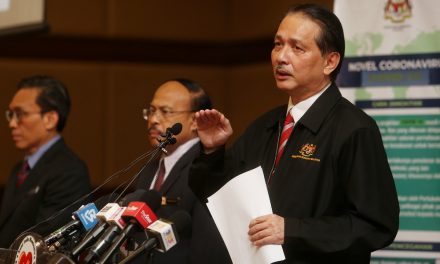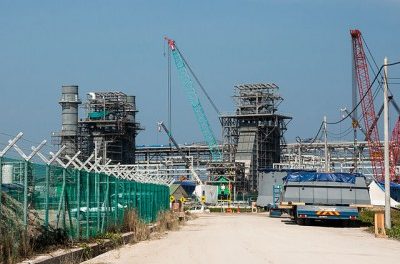Halal economy is new source of growth, says PM
The halal economy can become a strong contributor to the global economic recovery process post-Covid-19 pandemic by venturing into new sources of growth and enhancing trade ties, said Datuk Seri Ismail Sabri Yaakob. The Prime Minister pointed out that the halal economy could act as a catalyst through its various value propositions. He said opportunities in halal industries were immense, citing, the market size of the global halal industry was projected to be worth US$5 trillion in 2030 from its current value of US$3.1 trillion (RM12.8 trillion). Ismail Sabri said halal industry stakeholders should embrace the Fourth Industrial Revolution (IR4.0) which offers possibilities to boost their industrial capacity, increase productivity and enhance efficiency. He said a master plan had been drawn up to help entrepreneurs venture into new business opportunities to gain domestic and international market access. “In terms of knowledge-based halal development, Malaysia aspires to be the leading global centre of excellence for halal professionals and halal training,” he noted. (The Star)
Malaysian housing market to gradually recover in 2022 but prices remain flattish
The overall value in the residential sub-sector in Malaysia is likely to remain soft throughout 2021 and pricing for prime housing, in particular landed properties, is expected to gradually rise throughout 2022 as the property market is widely expected to start recovering on the back of a more positive outlook, according to Knight Frank Malaysia. “Moving forward, with domestic investors shifting from the stock market to safer and less volatile alternative investment products – supported by record-low interest rate environment, lockdown savings, attractive property deals (Home Ownership Campaign and developers’ sales campaigns) – the overall housing market is expected to gradually recover throughout 2022 although prices, in general, are expected to remain flattish,” said Knight Frank Malaysia deputy managing director Keith Ooi. The average house price for Kuala Lumpur – a buyer’s market – was lower by 3.1% on the year, likely attributed to weaker demand amid rising inventory as potential buyers and investors adopt the “wait and see” approach. (The Sun Daily)
Knight Frank: One in four people looking to move house in next 12 months
According to Knight Frank, one in four people are looking to move house in the next 12 months, based on findings from its latest Global Buyer Survey. “Globally, 19% of the respondents have moved house since the start of the pandemic, of which 25% are in Australasia and North America. Of the non-movers, 20% are more inclined to move in 2021 as the pandemic continues,” said the property consultancy. It added that the findings coincide with its Prime Global Forecast, which highlights that global house prices are on average likely to increase by 4% in 2021. Prime housing prices, in particular of landed properties, are expected to gradually rise throughout 2022. Knight Frank Malaysia associate director, international residential project marketing Dominic Heaton-Watson said cities are back in favour. “This reflects an increase in demand for both larger, more spacious apartments, and pieds-a-terre in city centres — certainly a common theme with Malaysian investors looking at the UK, Australia and US,” he said. (The Edge)
Khairy: High-risk Covid-19 patients in categories two and three to be placed at PKRCs
Health Minister Khairy Jamaluddin today said that high-risk category 2 and 3 Covid-19 patients will now be treated at the low-risk quarantine and treatment centres (PKRCs) around the country. The decision was one of several key shifts in the government’s strategy Khairy announced in a bid to rein in the virus amid growing public concern over the stubbornly high rate of daily cases and a surging fatality rate. Khairy announced sweeping changes to the ministry’s Covid-19 data reporting standards earlier, pledging to release crucial granular data that were previously not made available as part of efforts to “prepare’” the public with information needed to live with the coronavirus. The ministry has changed its tone about its Covid strategy recently, saying it no longer wants to achieve “herd immunity” but instead is preparing the public to co-exist with the pathogen in anticipation that the disease would be endemic. (Malay Mail)
Domestic tourists, except from EMCO areas, allowed to visit Langkawi from Sept 16
Domestic tourists from all over the country, with the exception of those residing in areas placed under the enhanced movement control order (EMCO), are allowed to visit Langkawi island from September 16, said Tourism, Arts and Culture Minister Datuk Seri Nancy Shukri. She said the visit to Langkawi is also open to people from states under Phase One of the National Recovery Plan (PPN). However, Nancy said visitors would have to apply for a police permit before their departure and show the necessary documents such as flight tickets, ferry tickets or hotel reservation receipts as proof. She said those travelling by road would need to use the services of a travel agency, at least for transport from the starting destination to the ferry jetty to Langkawi. Tourists who start off their journey from Kedah and Perlis, as well as those travelling by air, are not required to engage the services of a travel agency. Visitors must have completed both doses of the Covid-19 vaccine. No age limit has been set and insurance coverage and Covid-19 screening are also not mandatory. (Malay Mail)

Children born overseas to Malaysian mums eligible for citizenship
Malaysian mothers with a foreign spouse can now automatically pass on their citizenship to their children born outside Malaysia after a landmark Kuala Lumpur High Court ruling. The Court ruled on Thursday (Sept 9) that Article 4(1)(b) of the Federal Constitution together with the Second Schedule, Part II, Section 1(b), pertaining to citizenship rights, must be read in harmony with Article 8(2), which prohibits discrimination on the basis of gender. A Malaysian man can confer his citizenship automatically even if the child is born abroad to a foreign spouse – he just has to register the birth and it takes about three days to sort out the formalities. Previously, Malaysian mothers with foreign spouses could not automatically pass on citizenship to their children born outside Malaysia. They had to apply for the child’s citizenship, and reapply if the application was unsuccessful. Currently, Malaysia is one of 25 countries in the world that denies women the right to confer nationality on their children on an equal basis as men. Malaysia is also one of 50 countries in the world that denies women the equal right to confer nationality on their spouses. (The Star)





